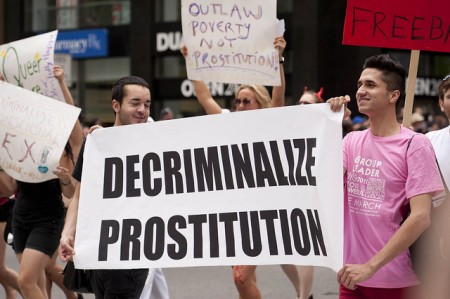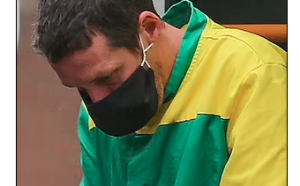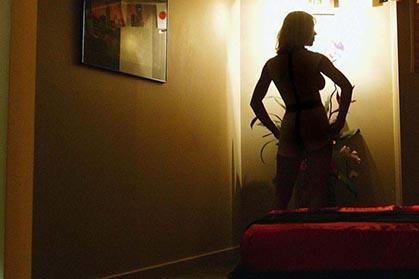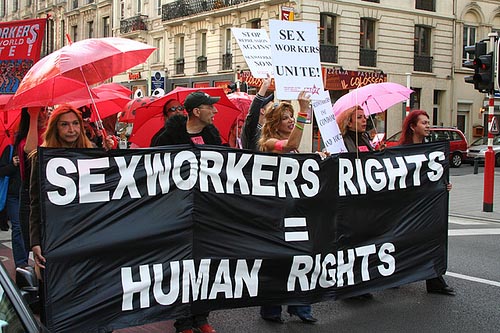‘The evidence is clear. The system that protects the rights of sex workers is decriminalization’, says sex worker-led charity SCOT-PEP. ‘Sex workers need rights, not so-called-rescue’.
As the debate in the media continues, sex workers and allies across Scotland urge policy makers to uphold the sauna licensing system – a system that has kept Edinburgh sex workers demonstrably safer than their counterparts in the more punitive Glasgow – as a first step towards decriminalization.
Lily, a sex worker, said: “The Edinburgh saunas provide a safe workplace for women: safety was the main reason for continued licensing. Until we can move towards full decriminalization in Scotland where women can work with control over their own work environments and work with the full protection of the law, licensing must continue. Those really concerned about safety must not support this brutal and misguided attack but instead listen to workers as we know what is best for our health, safety and protection and that is full decriminalization. Only in a fully decriminalized legal environment, where we can choose where and how we work, who we work for (including the ability to work in cooperatives with other workers), and have the protection of police rather than being made to fear them, will we be able to get on with our work like the rest of you and become able to challenge the stigma we face for the work we choose.”
SCOT-PEP has a twenty five year history of working with sex workers, as a service provider – founded by sex workers – and latterly as a sex worker-led organization that works to amplify the voices of sex workers of all genders throughout Scotland. This background and work gives SCOT-PEP a uniquely well-informed perspective on both the imperative to maintain an approach that centers upon harm reduction, and, beyond that, the necessity of introducing a human rights-based framework. SCOT-PEP urges the council to retain the Edinburgh model of tolerance and licensing for the saunas, as this has ensured a safe workplace for women for nearly three decades – and, beyond that, to move decisively towards the New Zealand/New South Wales model of full decriminalization that we see held up globally as best practice by international agencies including UNAIDS and the World Health Organization.
For example, in 2012 the UN Development Program (UNDP), the UN Population Fund (UNFPA) and the Joint United Nations Program on HIV/AIDS (UNAIDS) released their report Sex Work and the Law, which examined 48 countries. The report states:
·Criminalization of sex work increases vulnerability to HIV by fueling stigma and discrimination, limits access to sexual health services and condoms.
·Removing legal penalties for sex work allows HIV prevention and treatment programs to reach sex workers and their clients more effectively.
·There is no evidence that decriminalization has increased sex work.
The most recent UNAIDS Guidance Note, published in December 2012, emphasized the repeated and multiple failures of criminalization, including ‘indirect criminalization’, i.e of managers, or clients. It stated, “There is very little evidence to suggest that any criminal laws related to sex work reduce demand for sex or the number of sex workers. Rather, all of them create an environment of fear and marginalization for sex workers, who often have to work in remote and unsafe locations to avoid arrest of themselves or their clients.”
Indirect criminalization is often promoted by those who present it as ‘rescue’ for sex workers – a rescue which leaves sex workers vulnerable to increased stigma, to police harassment or worse, and to poverty. The UNAIDS Guidance Note highlights this, speaking of “policies … designed ignoring the voices of sex workers often result in unintended harms, including increased HIV risk”.
Kat, a sex worker in Scotland, said, “It is so striking how this whole debate is happening without us, as if we can’t possibly have anything to contribute – and yet most of these people are pretending to have our best interests at heart. If you want to hear what the women who work in the saunas have to say, you should ask those women, not some NGO. When these NGOs are asked what they think, they should be ashamed to speak ‘for’ sex workers – without listening us. They won’t tell you to go ask those women – who can speak for themselves – because they know that the lived experiences of sex workers will disrupt their too-easy ideological catchphrases. Sex workers know that sex work is work: under the current system, our jobs are perfectly legal, but when we take steps to make our workplaces safer, those steps criminalize us. We need full decriminalization so that we can work safely, without fear of the police”.
Laura Lee, a sex worker, said, “The recent raids clearly represent a change in policy in Edinburgh – which is very worrying. We know that when sex workers are no longer working together in safety – and are dispersed – they are in greater danger”. She continued, “Far more worrying is the news that there are to be talks to bring about a new ‘strategy’ for the workers involved. Once again, sex workers have been excluded from that process and I can’t think of any other industry where those who are directly affected are completely ignored. It denies us a right to have our voices heard and is shameful”.
Alix, a sex worker based in Scotland, said, “The sauna policy in Edinburgh has allowed women to work in safer conditions. It is disappointing to learn that Police Scotland employed tactics which led to women feeling degraded and fearful of dealing with the police. In a climate where women’s groups are purporting to want to help women it is astounding that no-one bats an eyelid when sauna workers are treated in the manner described by the women during the raids.”
SCOT-PEP highlighted the fact that a punitive approach to sex work makes workers more vulnerable: in Glasgow, where the police aggressively pursue women who are flat-sharing for safety, many more people are forced to work on the street. When the law changed in 2007 to criminalize the clients of street-based sex workers, SCOT-PEP recorded a 95% rise in attacks on women working outdoors in Edinburgh. Each of the above laws are presented as targeting someone other than the sex worker: in the former, women are pursued under laws regarding management, and in the latter, clients are supposedly the focus. It is obvious, though, that the real impact is on sex workers – who need to be able to work together for safety, or to communicate openly with a manager or a client, without constantly fearing police harassment or worse.
Selling and buying sex is legal in Scotland. Sex workers are required to pay tax, and can belong to Britain’s third largest trade union. The people of Scotland need to ask themselves whether this kind of punitive approach to sex work is the best use of their very limited public funds. Sex workers in Scotland, and around the world, are calling for decriminalization. SCOT-PEP urges Police Scotland to implement a moratorium on sauna raids and on crackdowns on sex workers, clients, or managers, as the weight of evidence shows it fails to decrease sex work and clearly makes sex workers more vulnerable and marginalized.
Source








[…] the University of Edinburgh, as well as endorsing sex workers’ rights organisations, “such as SCOT-PEP and Sex Workers’ Open University”, according to Beecroft’s […]